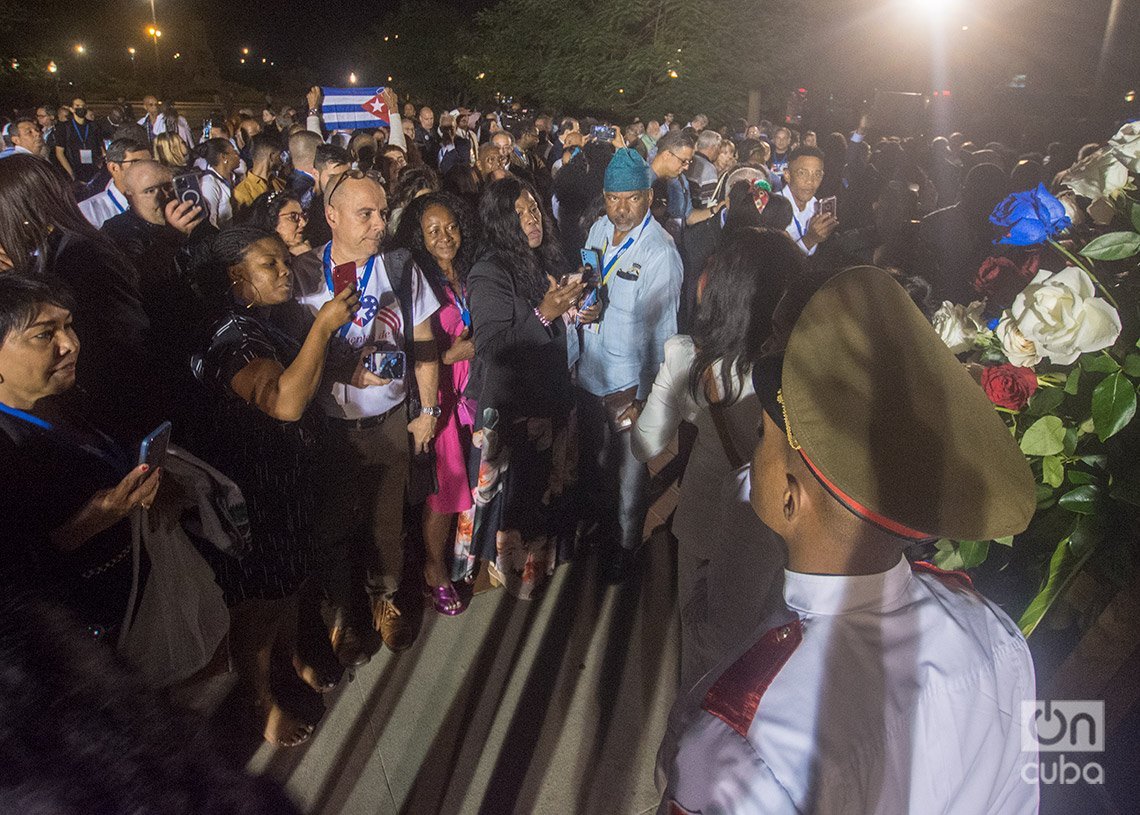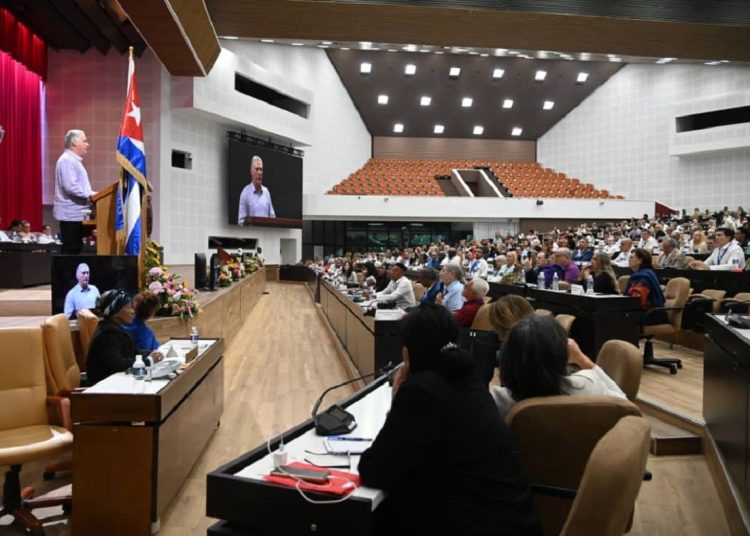President Miguel Díaz-Canel invited Cuban emigrants “to join this new stage” of the island, during the closing of the 4th The Nation and Emigration Conference.
On closing the event, which took place this weekend at the Havana Convention Center, the president reiterated the Cuban government’s “constant and irreversible commitment” to strengthening ties with its compatriots abroad at a “very different moment” for the country.
“All those who want to contribute to this collective work will be welcome,” said Díaz-Canel, who appealed to Martí’s formula of a country “with all and for the good of all,” except, he said, for those who “live or work paid by other governments.”
In his speech, the Cuban president defended “the path of dialogue, respect and understanding” as the way to interact with the Cuban community residing outside the island, which he thanked for their solidarity in times such as the pandemic and the occurrence of disasters. Furthermore, he considered that currently these links “increasingly happen more naturally.”
Con discurso de @DiazCanelB clausura la IV Conferencia "La Nación y la Emigración" este 19 de noviembre en La Habana.
"En nombre de nuestro pueblo les reitero que el compromiso de fortalecer los vínculos con nuestros nacionales en el exterior"#JuntosXCuba pic.twitter.com/fWquwwsrGr
— Nación y Emigración (@NacionyEmig) November 19, 2023
Regarding the Conference, he commented that with its holding “a historical duty” was fulfilled, particularly with those who began these meetings at the end of the 1970s, and assured that the event served to take stock of the progress made since then and to identify topics that need to be continued working on.
In this sense, he estimated that the event, in which 364 Cubans residing abroad from 57 countries ultimately participated, should be “a new starting point towards higher and, consequently, more challenging goals.”
Díaz-Canel described the Conference as “a Cuban exercise, between Cubans and for Cubans,” in which, in his opinion, there was “a debate rich in ideas and nuances” and in which “we have all learned.”
In his words, he described the United States embargo/blockade as “the greatest obstacle” to ties between Cuba and its nationals abroad and affirmed that there was consensus among the participants in the Conference on this matter.
Likewise, he lashed out at those who “try to break our natural and growing bond with our emigrants through generously financed campaigns of discredit and defamation” from the United States.
Despite this, he opined that “Cuba’s relations with its nationals abroad are going through one of their best moments.” He pointed out that the event that ended this Sunday in the Cuban capital should chart the path for “greater participation” of emigrants in the life of the country, particularly in socioeconomic development, at a time when the island is suffering a severe crisis and a strong wave of migration.
The closing day
On this day, in the morning session, the participants in the event exchanged with the country’s authorities about their possibilities of insertion into the Cuban economy and business and investment opportunities, a debate in which, according to the Ministry of Foreign Affairs, “the desire to contribute to the development of Cuba” and the impact of U.S. sanctions in this regard was addressed.
The possibility of opening small and medium-sized businesses on the island without the need to officially reside in the country, as well as investing in inefficient state entities, were among the concerns raised by emigrants, according to OnCuba.
In the afternoon, prior to the closing, another panel dedicated to social communication and technology took place, a scenario that increasingly affects the relationships of emigrants with their families, friends, and authorities on the island, and which, according to Díaz-Canel in his closing speech, must contribute to “projecting a living image of Cuba, with its lights and shadows.”
After the event’s official closing, the participants honored José Martí with the placement of a wreath in Havana’s 13 de Marzo Park in front of the equestrian statue of Cuba’s National Hero.


To close the activities, a cultural gala was planned at the Martí Theater, starring the renowned pianist Roberto Fonseca, one of the most important figures in Cuban jazz today, along with his Temperamento group.











Ideological squabbles should be put aside and all should focus on cooperation for the betterment of Cuba and the lives of the Cuban people.